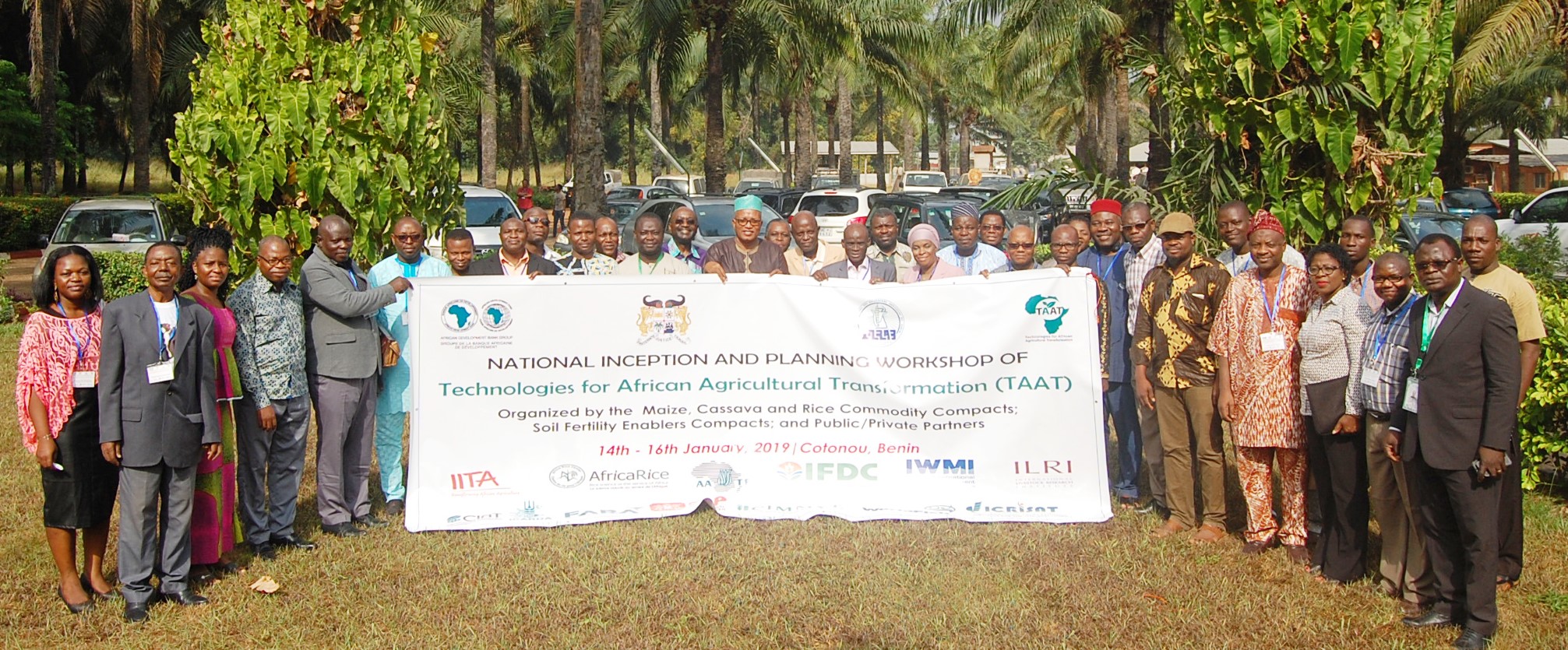
The 2019 TAAT National inception planning meeting began today in Cotonou, Benin Republic.
The joint meeting which brings together experts, leaders and representatives of the Maize, Cassava, Aquaculture, Rice and Soil Fertility Compacts is holding at the IITA-Benin conference hall from the 14th to the 16th of January 2019.
According to Dr. Francois Lompo, lead convener and Coordinator of the TAAT Soil Fertility Compact, the joint meeting brings together stakeholders and experts in maize, cassava, aquaculture, rice and soil fertility to plan and agree on the modalities for implementation of TAAT activities in Benin for 2019.
“The need for this meeting is further reinforced by the need for key stakeholders with contributions in the implementation of TAAT activities in Benin to have a common understanding of the expectations of the intervening compacts and the TAAT programme as a whole,” Dr Lompo added.
Dr. Vincent Joseph Mama who represented the Beninese Minister for Agriculture, Livestock and Fishery, Hon. Gaston Cossi Dossouhoui hailed TAAT as a complete programme that perfectly fits into the right line of actions planned by the Government of Benin.
“For this purpose, It will involve planning and actions from all actors including the government to ensure that Benin achieves the national and regional targets of TAAT.” Dr Mama added.
Head of TAAT Clearinghouse, Dr. Mpoko Bokanga in his presentation called for extensive support for the TAAT programme as the transformation of African agriculture lies in the technology pathway outlined by TAAT .
Technologies for African Agricultural Transformation (TAAT) is a program initiated by the African Development Bank (AfDB) as part of its Feed Africa Initiative.
The main objective of the program is to improve the business of agriculture across Africa by raising agricultural productivity, mitigating risks and promoting diversification and processing in 18 agricultural value chains within eight Priority Intervention Areas (PIA).
The program is implemented by IITA in close partnership with other CGIAR Centres and specialized technical centres (e.g. AATF, IFDC, FARA), national agricultural research and extension systems and private sector partners.
The TAAT programme increases agricultural productivity through the deployment of proven and high-performance agricultural technologies at scale along selected value chains. TAAT operates as a network of interacting “Compacts” with nine devoted to specific commodity value chains, and six others serving as “Enablers” that provide needed specialist services.
The nine (9) value chain compacts are rice, maize, cassava, wheat, sorghum and millet, orange-flesh sweet potato, high-iron beans, Livestock, aquaculture compacts. The six (6) enabler compacts are soil fertility management, water management, capacity building, seed policy, fall army worm control and ENABLE TAAT compacts.

